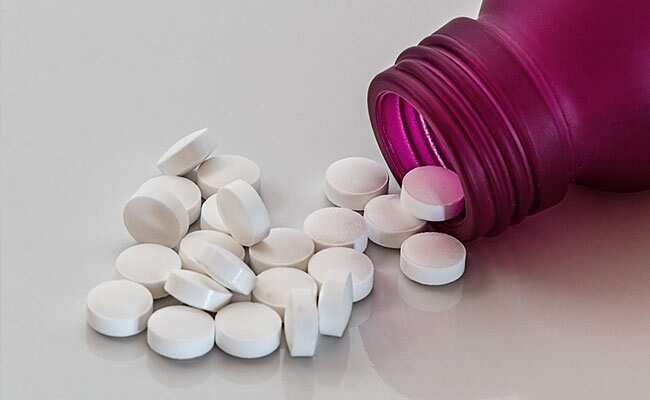Researchers have revealed that the proportion of high-strength painkiller poisonings among children which result in emergency hospital admissions has increased.

The proportion of high-strength painkiller poisonings among children has increased, says study
The proportion of high-strength painkiller poisonings among children which result in emergency hospital admissions has increased, researchers have revealed.
The study involving more than 200,000 US paediatric cases of pain-relief misuse, abuse or self-harm highlights how the opioid crisis is affecting young people.
The results, published in the journal Clinical Toxicology, show that although the number of incidents reported overall has dropped since 2005, the threat to life is rising.
"This study suggests the opioid epidemic continues to have a serious impact on pediatric patients, and the healthcare resources required to care for them," said study researcher Megan Land from Emory University in the US.
"Paediatricians caring for children with opioid ingestions must continue to strive for effective policy changes to mitigate this crisis," Land added.
According to the researchers, the proportion of paediatric intensive care unit (PICU) admissions rose by more than a third during the study period from 5,203 (6.6 per cent), out of 80,141 reports of poisonings between 2005 and 2009, to 4,586 (9.6 per cent) out of 48,435 between 2015 to 2018.
The focus has largely been on adults so this study set out to investigate the impact on children, specifically trends in admissions to PICU.
The researchers consulted the National Poison Data System database for accidental or deliberate incidents of opioid exposure involving babies and children up to age 19.
They found 207,543 cases were reported to 55 US poison control centres from 2005 to 2018.
Factors analysed included opioid type, cause of drug poisoning and the rate of cases admitted to psychiatric units.
The study also calculated the proportion of patients who ended up in PICUs and the percentage of these requiring medical treatment.
The research suggests that the majority of child drug poisonings did not require an intensive care admission, and either resulted in minor effects such as drowsiness -- or none at all.
But the proportion needing specialist treatment did increase over the study period.
This trend of children ending up in intensive care is being fuelled by suspected suicide cases among under-19s who have overdosed on legal or prescription opioid drugs, the study said.
Methadone, prescription pain-reliever fentanyl and heroin are most associated with the need for intensive care doctors to give medical treatment, according to the findings.
The picture was similar with psychiatric unit admissions -- the percentage of these more than doubled from 2,806 (3.57 per cent), out of 80,141 between 2005 to 2009, to 3,909 (8.18 per cent) out of 48,435 between 2015 to 2018.
This was also the case for the proportion of intensive care admissions needing cardiopulmonary resuscitation (CPR) which went from 68 (1.31 per cent) out of 5,203 to 146 (3.18 per cent) out of 4,586 over the same time period.
The researchers are calling for a strategy that combines laws to restrict access to opioids with improved mental health support for children and adolescents.
Doctors who treat children and young people should continue lobbying for policy changes, they added.
(This story has not been edited by NDTV staff and is auto-generated from a syndicated feed.)
DoctorNDTV is the one stop site for all your health needs providing the most credible health information, health news and tips with expert advice on healthy living, diet plans, informative videos etc. You can get the most relevant and accurate info you need about health problems like diabetes, cancer, pregnancy, HIV and AIDS, weight loss and many other lifestyle diseases. We have a panel of over 350 experts who help us develop content by giving their valuable inputs and bringing to us the latest in the world of healthcare.














